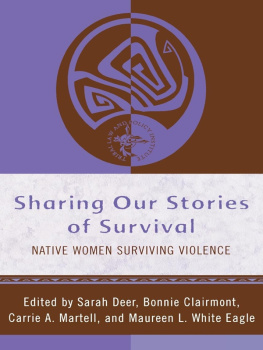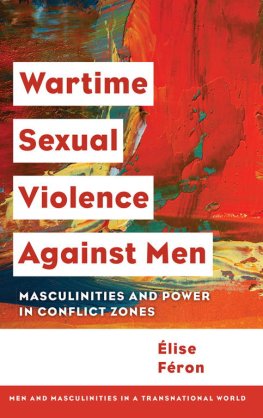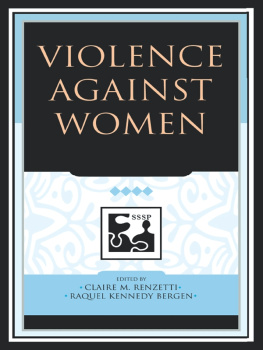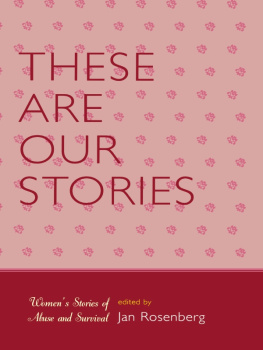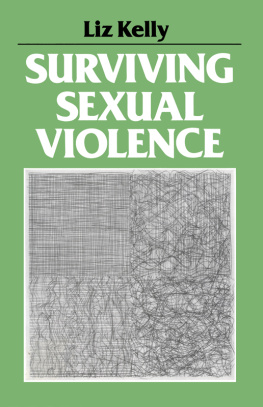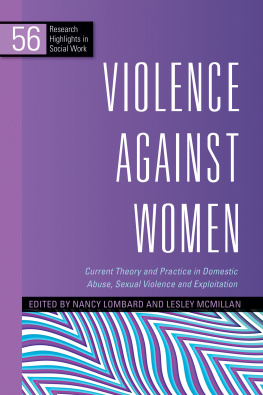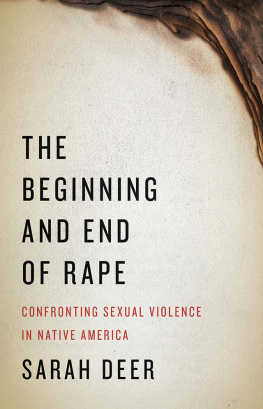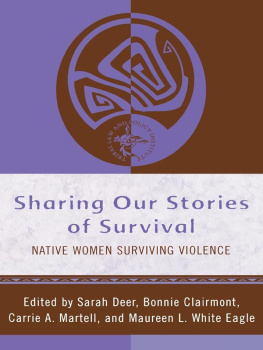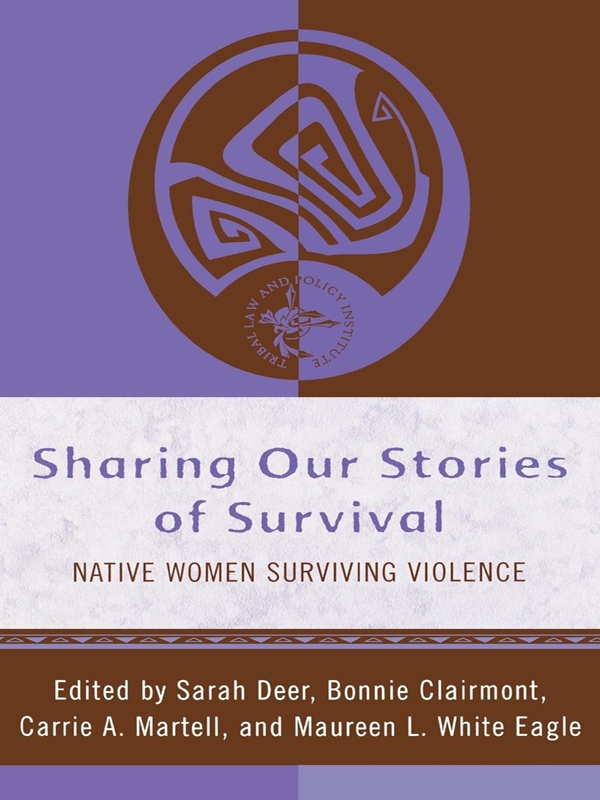About the Advisory Board
Genne James, Navajo, is an enrolled member of the Navajo Nation and has worked in the area of domestic violence for over fifteen years. She is board member of Monero Mustangs, a nonprofit committed to protecting and preserving the wild mustangs of northern New Mexico.
Tina Olson, Yaqui, has worked on issues surrounding domestic violence for over twenty years. As project coordinator for Mending the Sacred Hoop TA Project she has organized such domestic violence trainings as Law Enforcement, Building a Coordinated Response, Creating a Process of Change for Men Who Batter, Regional Trainings, Sexual Assault Response for Advocacy, and In Our Best Interest. She has taken various roles in the work to end violence in the Duluth, Minnesota, community, working as a womens advocate and mens group facilitator, as well as aiding in the development of Mending the Sacred Hoops coordinated response in Carlton and St. Louis counties in northeastern Minnesota that began in 1990. Tina is currently the board chair for Women in Construction, an Economic Justice Project developed to provide livable wages to women by training low-income women to work in the construction trades. Tina is the proud mother of four daughters who are all working in helping field careers, law, social work, nursing, and law enforcement. She is also grandmother of four grandchildren. Tina lives in Duluth, Minnesota, with her partner of thirty years, Paul Olson.
Mary L. Pearson, Muscogee Creek descendant, has been a tribal judge since 1989 and has been admitted to the Oregon, Idaho, and Washington bars. Mary has served as chief judge for Coeur dAlene Tribe since February 2004 and court administrator since March 2006. She has assisted in training court personnel in how to hear, try, and advocate and assisted in developing domestic violence materials since 1998. Mary has three grown children, six grandchildren, and two great-grandchildren.
Beryl Rock , Minnesota Chippewa Tribe, enrolled at Leech Lake Indian Reservation, is the mother of three, grandmother of five. She recently graduated with a B.S. in social work from the College of St. Scholastica.
Rose Mary Shaw , Osage Indian from Pawhuska, Oklahoma, currently serves on the Oklahoma Department of Mental Health and Substance Abuse Board. She is the first person of color to be appointed to this state governing board. She has served on numerous national and state advisory boards for victim assistance agencies and co-founded the first Indian tribal domestic violence and sexual assault coalition in Oklahoma. She graduated from Northeastern State University of Oklahoma with her B.S.W and continued at Washington University at St. Louis for her M.S.W. She currently holds a license for social work with a clinical specialty. She currently is the director of the Osage Nation counseling center, which oversees the chemical dependency, mental health, and domestic violence programs for the Osage Tribe of Indians.
Rebecca St. George , Anishinaabe, is the mother of a young son and a young daughter. She is also an auntie, a niece, a daughter, a sister, a cousin, and a granddaughter. Rebecca has been working to address violence against Native women since 1993. She has volunteered at a battered womens shelter, facilitated batterers reeducation groups, volunteered with the sexual assault crisis line in Duluth, Minnesota, and works with Mending the Sacred Hoop, both in the area of technical assistance and, currently, as an advocate for Native women in Duluth and the surrounding areas.
Tammy M. Young , Chookaneidi Clan, Tlingit, has been a co-director of the Alaska Native Womens Coalition since it was born in 2001. It is a nonprofit, nongovernmental agency dedicated to working with families affected by violence in rural Alaska. She is a founding mother of a new shelter in interior Alaska called Our Grandmothers House. Tammy also is a faculty member of Clan Star, Inc., providing technical assistance to the Tribal Coalitions across the country as the mentoring director. She lives in her father, John A. Young Jr.s, home village of Sitka. Her mother, Jessie Johnnie, is from Hoonah, Alaska, but resides now in Sitka. Jessie has been the guiding force in Tammys life, raising her to follow her maternal traditions. Tammy was born to the Chookaneidi, the Brown Bear clan. Her children James (thirty; recently married to Pamela (Howard), also thirty) and Heather (twenty-six) also reside in Sitka, and Stormy (twenty) resides in Anchorage with her newborn son Tristen. Advocacy for women and children has been a lifelong pursuit, while paying attention to elders and the stories.
About the Contributors
Jacqueline Agtuca is director of Public Policy of Clan Star, Inc, a nonprofit incorporated under the laws of the Eastern Band of Cherokee Indians, dedicated to increasing the safety of Native women; former USDOJ deputy director for the Office of Tribal Justice (19992001) and senior policy advisor for the Office on Violence Against Women (19951999); Family Violence Prevention Fund Director Criminal Justice (19881995); Legal Assistance Foundation of Chicago staff attorney (19861988).
Anonymous , Apsalooke, Crow Tribe.
Judi Brannan Armbruster , Karuk Tribe of California, direct descendant. Judi was raised in a blue-collar suburb of Phoenix, Arizona. Not wanting to get caught up in the cycle of pain, prejudice, anger, and abuse led her on a search for the roots of her Native ancestry. Ten years ago she came home to the Karuk ancestral lands (the very top of California), where she was able to reignite her poetic voice and find healing. Her contributions to several anthologies and her strong online presence as a poet are indeed a testament to that process. Judi is a fifty-eight-year-old retired registered nurse, married with one daughter.
Diane E. Benson , Lxeis, Tlingit, (enrolled Sitka Tribe of Alaska), owner of Tleix Yeil Drama & Commentary, provides consultation, historical research, and writing services for film or other performance or educational programs, particularly involving issues of diversity or politics. Diane is a published writer of poetry and nonfiction, and she holds a Master of Fine Arts degree and is completing a Masters in public policy. She often speaks publicly on social and recovery issues and is a facilitator of the Finding Your Voice workshop. She lives in Chugiak, Alaska, with her dog-team.
Mary BlackBonnet, Sicangu Lakota, received her B.A. in creative writing from the University of South Dakota. She believes writing is a powerful way to deal with all the challenges life can throw you, stating: You can either sit down and mope, or you can pick up your pen and take back your power. She hopes to give writing workshops to women and teenagers on the empowerment of writing. Her work has been published in Nagi Ho Journal, Tribal College Journal, Frontiers: A Journal of Womens Studies, Potomac Review, and Genocide of the Mind, Eating Fire, and Tasting Blood.
Frances M. Blackburn , Northern Arapaho Tribe, is the proud single mother of six beautiful children and resides on her home reservation in Wyoming. She no longer considers herself a victim, but a work in progress of becoming a survivor. She now dedicates her life to helping victims of violence among her Native people.

